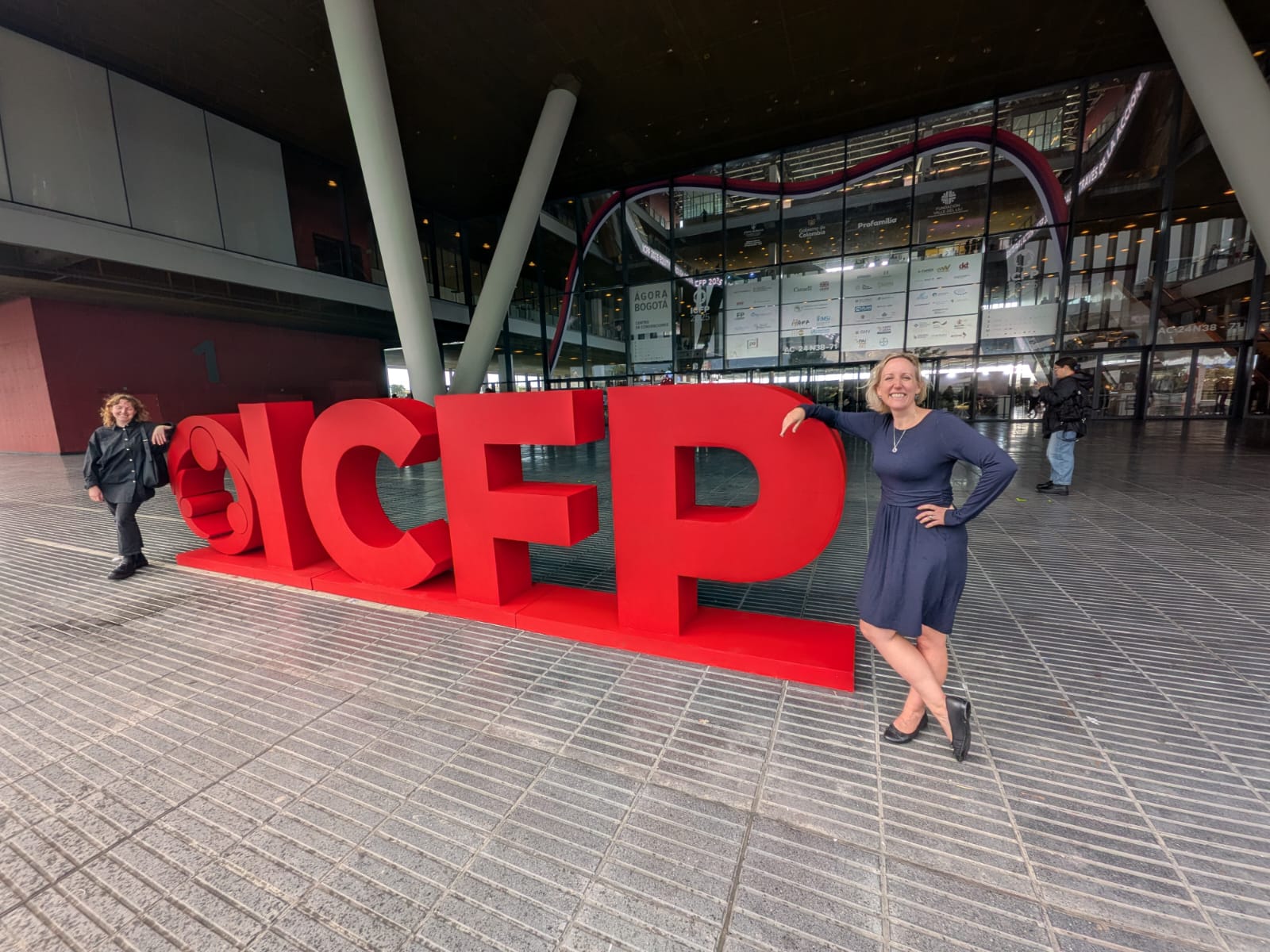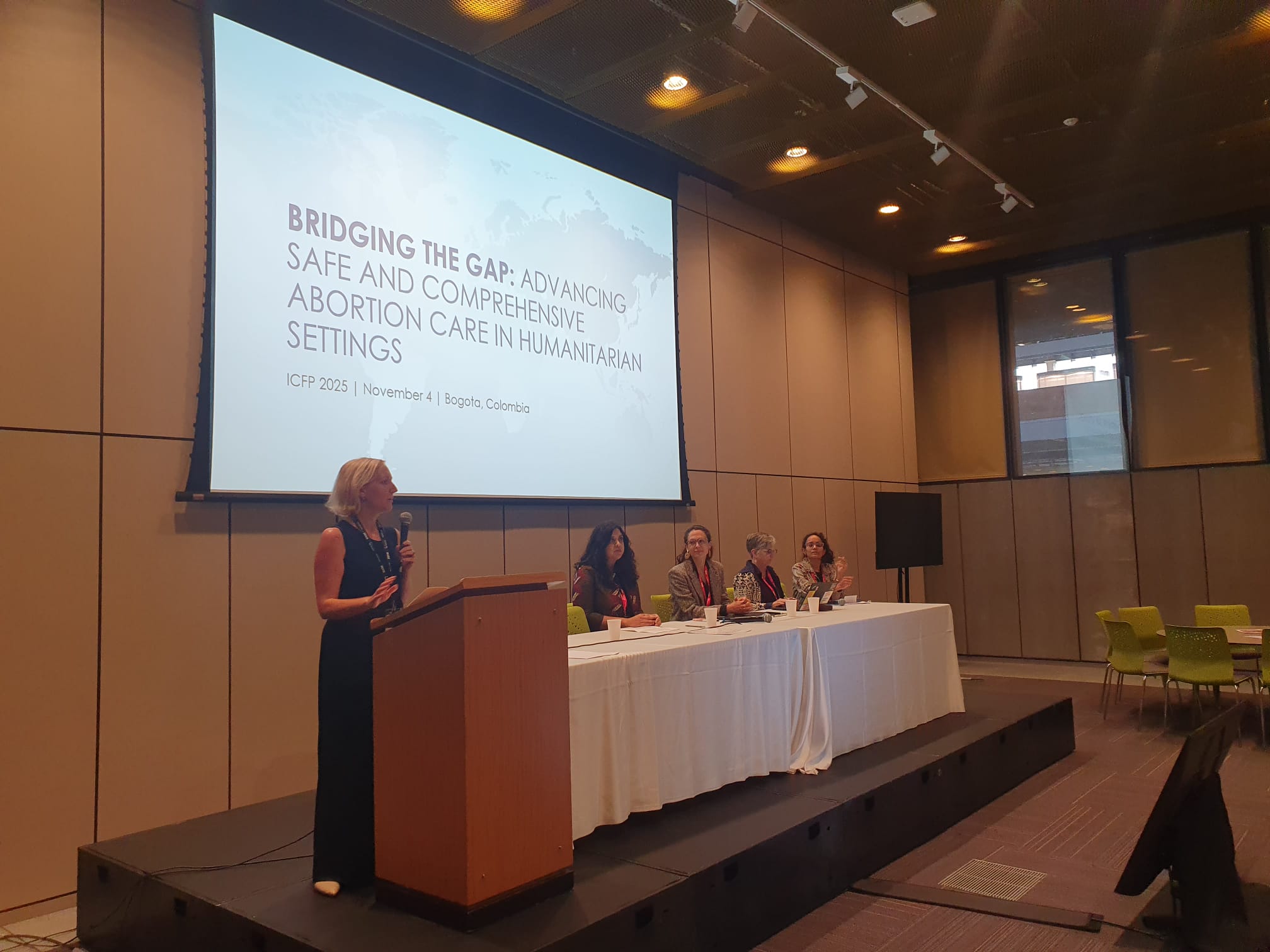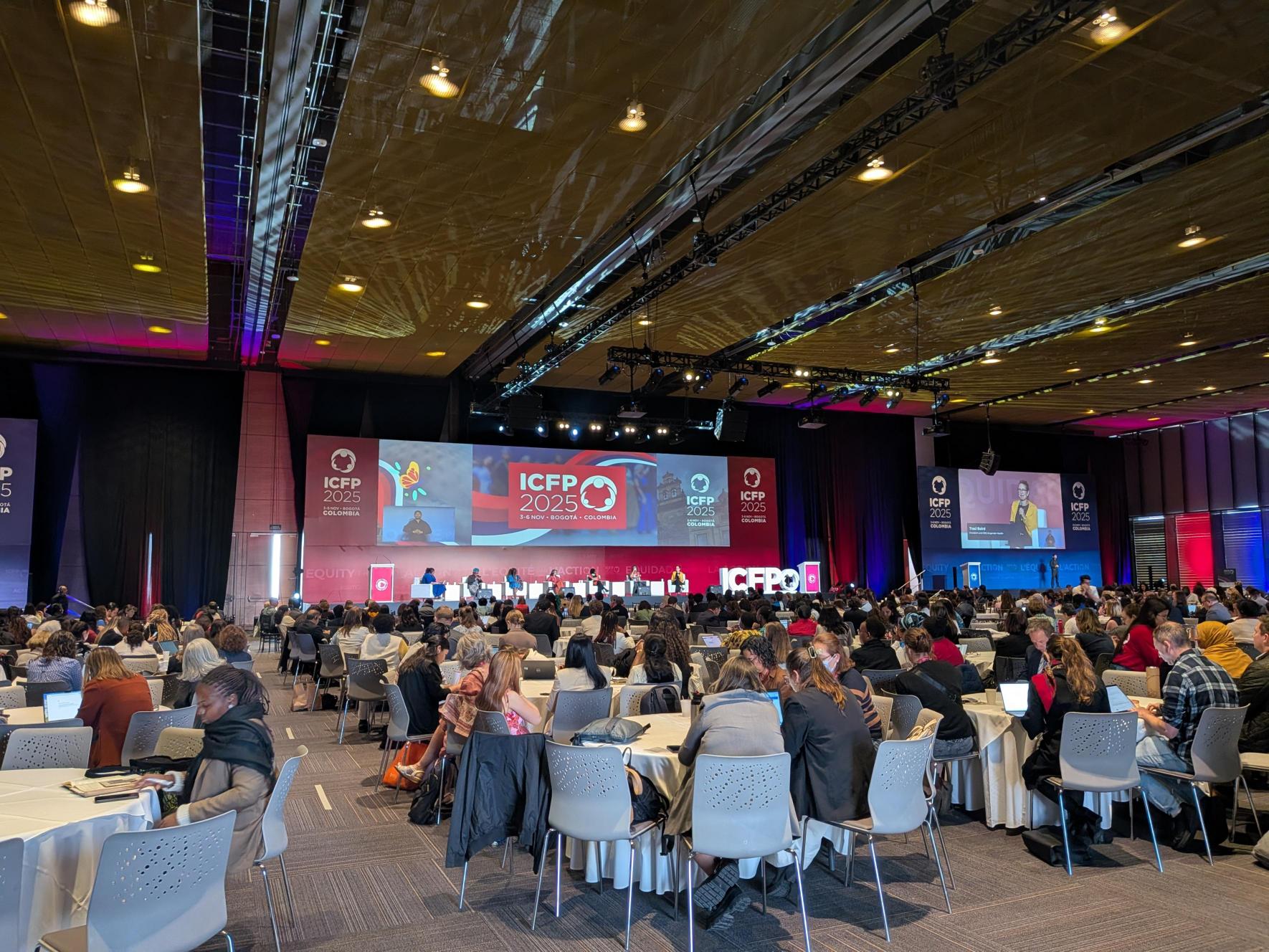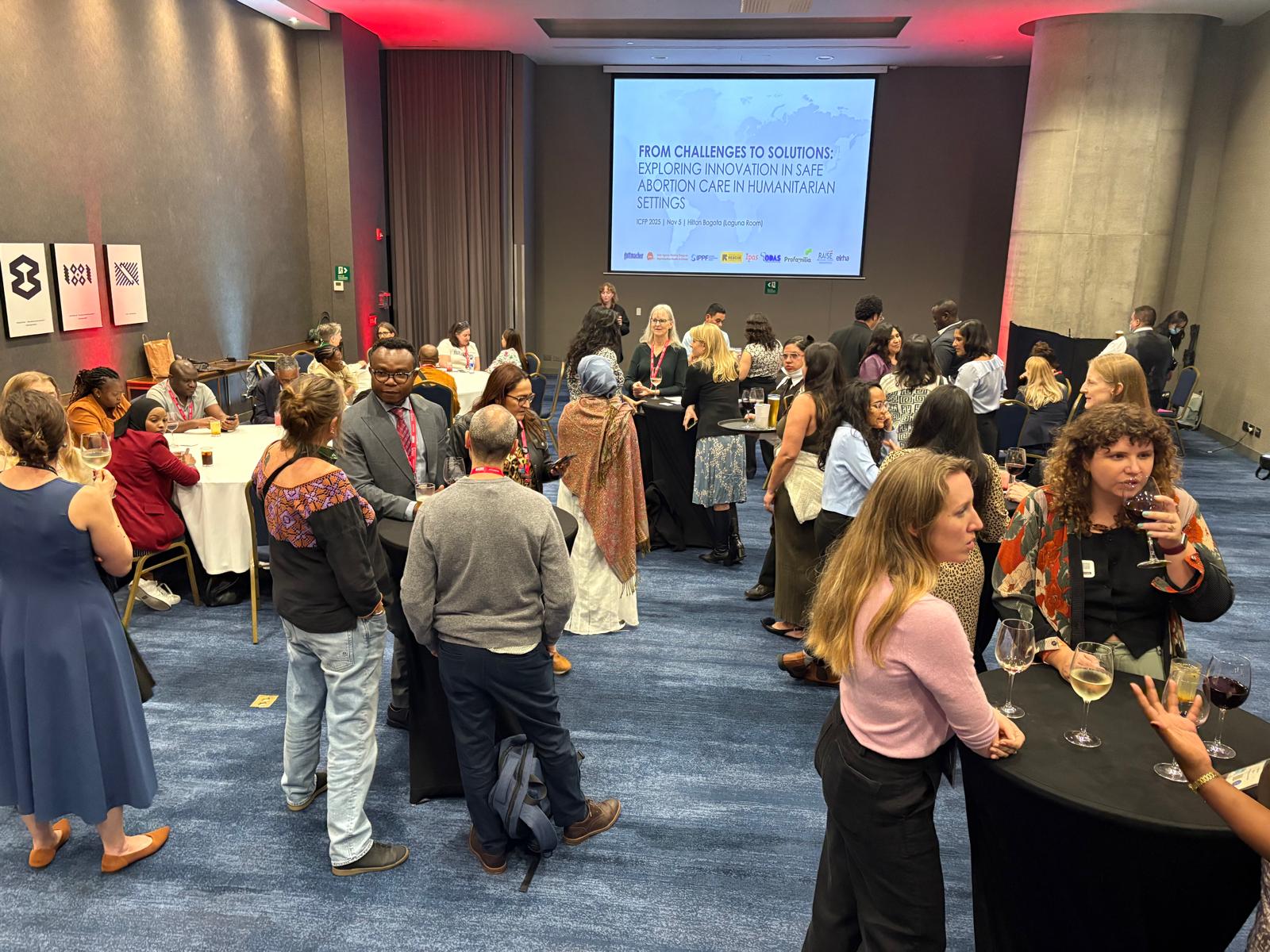Integration, inclusion, and innovation: What we learned at the 2025 International Conference on Family Planning
13
November
2025
Type
Elrha insights
Area of funding
Humanitarian Research
Humanitarian Innovation
Focus areas
No items found.
Year

Last week we took part in the 2025 International Conference on Family Planning (ICFP), in Bogotá, Colombia, joining global leaders, researchers, advocates and practitioners to advance sexual and reproductive health and rights (SRHR) for all.
It was an opportunity to share learning from our work and the work of our partners, and to explore how humanitarian research and innovation can support and promote better SRHR services, education and outcomes for people affected by crisis.
Connecting research, practice, and people
Our panel discussion, Bridging the Gap: Advancing Safe and Comprehensive Abortion Care in Humanitarian Settings, highlighted key insights, evidence gaps and urgent action needed on safe and comprehensive abortion care in emergency settings.
Together with grantees, researchers and practitioners, we discussed agency and the diffusion of self-managed abortion in refugee settings, the lived experiences of self-managed abortion in Eastern Democratic Republic of Congo (DRC), the legal, technical and operational evidence for safe abortion care globally in crisis, and safe pathways to post-abortion care in the Central African Republic.
We also hosted a networking side event to spotlight new research, practical initiatives and policy actions, emphasising locally-led innovations and actionable recommendations for implementing safe abortion care in humanitarian contexts. During the event, we launched our new policy brief – ‘Her Health, Our Future’ – an evidence-led call to action for donors and policymakers to recognise abortion care as essential, lifesaving healthcare in crisis settings.
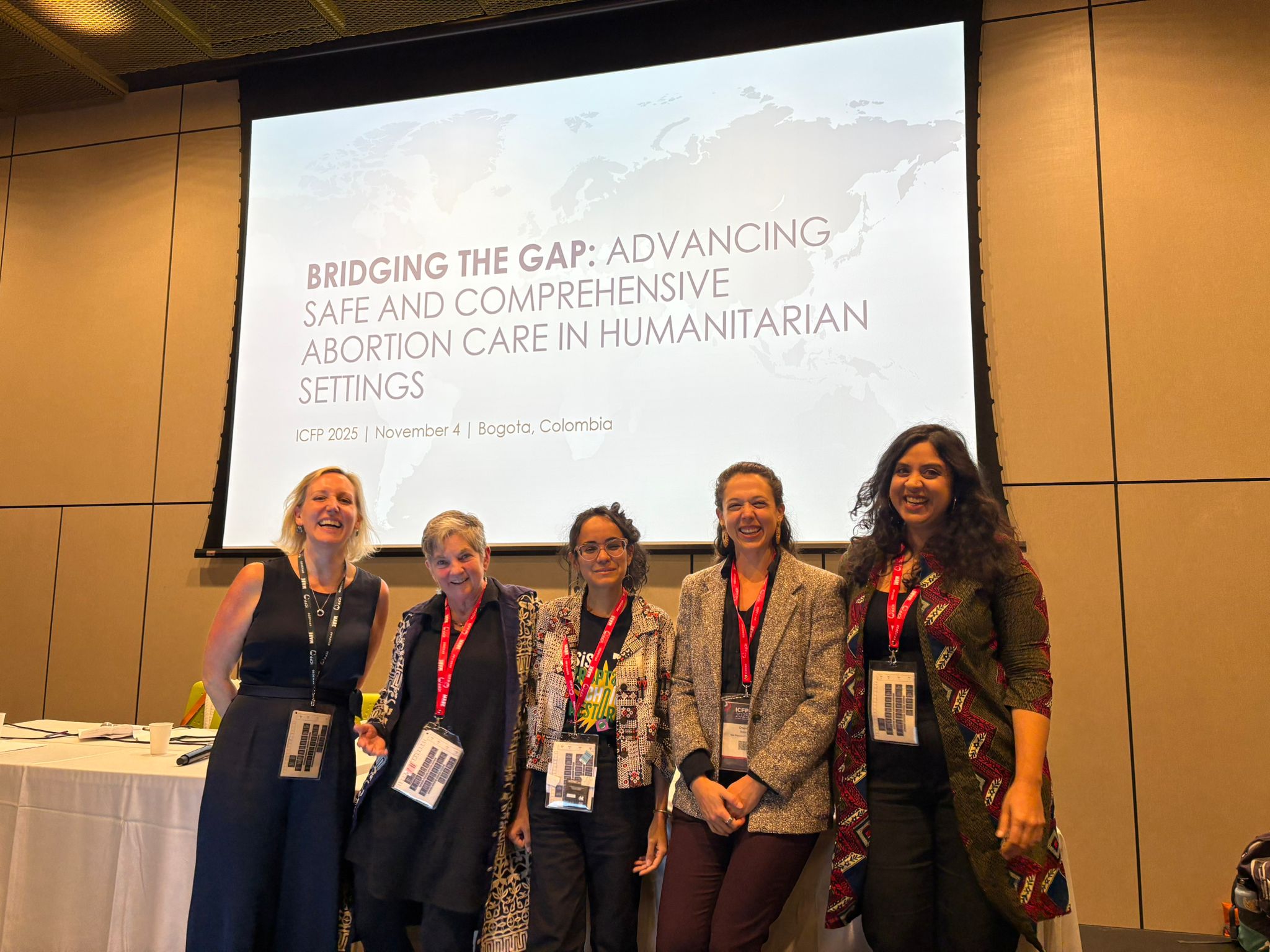
Spotlighting grantees
We were also proud to see and support our grantees and partners who featured across the conference:
- Noor Jaber was recognised with the 2025 Phil Harvey Innovation Award from DKT International for her leadership on Nawat Health, a platform providing SRHR information and counselling in Arab states. Nawat has partnered with Oxfam and local women’s rights organisations to provide humanitarian services to gender-based violence (GBV) survivors in Iraq, Palestine and Yemen.
- Suzanne Kidenda, from Physicians for Human Rights, spoke on a panel about the scaling of GBV prevention and intervention innovations. Suzanne shared insights from the MediCapt project, a mobile app which enables clinicians to securely document forensic evidence of sexual and gender-based violence, strengthening access to justice for survivors in Kenya and the DRC.
- Findings from an Elrha-supported study, ‘Effects of cash transfers on intimate partner violence in humanitarian settings in South Sudan’, were also presented in a session on innovation and gaps in SRHR and GBV response. The research examines how cash assistance influences relationship dynamics and safety, offering critical evidence to inform protection and livelihoods programming in crisis contexts. The research examines how cash assistance can influence relationship dynamics and safety, providing critical evidence to inform protection and livelihoods programming in crisis contexts.
What we learned
Reflections from our Senior Humanitarian Health Research Advisor, Dr. Gillian McKay, Innovation Manager, Ian Brightwell, captured what resonated most, and where our collective efforts need to go next.
Engaging men in family planning
Male engagement in family planning remains limited in humanitarian settings. Stronger models are needed to involve men as active and supportive partners in decision making, rather than as bystanders. Approaches such as the Barbershop Toolkit, which uses community spaces to engage men, has proven effective in stable settings, but remains untested in crisis contexts. Adapting such approaches could help challenge gender norms, improve communication, and ensure that reproductive health decisions become shared responsibilities within relationships, families and communities.
Safe abortion: From science to implementation
The evidence for safe abortion care is clear, but implementation lags behind. Political, operational, and cultural barriers prevent proven practices from being applied in humanitarian responses – even though all these barriers have evidence-based approaches to overcome them. We need more implementation research to reveal where systems fail and how to better integrate safe abortion into routine health services. Using evidence to drive action must remain a key focus to ensure reproductive rights are protected (and celebrated), even in crisis contexts.
Reaching those on the margins
Inclusive SRHR must reach those who are too often missing from the conversation – people with disabilities, adolescents, older people, indigenous populations, displaced people (including those on the move), incarcerated people, sex workers, and people with diverse sexual orientations, gender identities and expressions.
Best practice isn’t just about reaching more people but reaching the most vulnerable and building on their strengths. Reliable information from trusted sources is central to informed choice. Limiting access to quality SRHR guidance is an infringement of reproductive rights – whether that be through inaccessible materials, poorly trained health care staff, gendered power dynamics, language barriers or cultural constraints. Understanding and addressing these challenges is essential for genuine inclusion and equity.
Integration and collaboration
Integration – or lack thereof – was a recurring theme throughout ICFP 2025. Climate resilience offers shared ground for humanitarian and development actors to align family planning and SRHR efforts. The defunding of GBV programming highlights the need to strengthen links between GBV, health, and SRHR sectors. Expanding SRHR to include non-communicable diseases can also help build more holistic health systems. Integration isn’t just vital for efficiency, it is essential for improving equity, collaboration and knowledge sharing, especially as resources become increasingly stretched.
Funding and the future
Conversations on funding revealed a familiar tension between scale and risk. Many donors prioritise expansion of proven approaches, yet innovation often starts small. Supporting locally led pilots allows for experimentation, learning, and adaptation before scaling. We champion community-driven innovation which reflects the realities of crisis-affected populations. Taking the risk of low impact at the pilot stage is often what enables long-term sustainable impact.
Looking ahead
Leaving ICFP 2025, we feel encouraged by the creativity, commitment, and collaboration shaping the SRHR field. By continuing to connect evidence and practice, we can strengthen how researchers, humanitarian actors and communities work together, ensuring women and girls receive equitable access to quality sexual and reproductive health services, no matter where they live.
Find out more
Explore more sessions and resources from the 2025 International Conference on Family Planning and keep an eye on our event page for further insights from our panel session.
No items found.
Stay updated
Sign up for our newsletter to receive regular updates on resources, news, and insights like this. Don’t miss out on important information that can help you stay informed and engaged.
Related articles
all latest news

News
Elrha at HNPW 2026: Exploring what’s next for the humanitarian system

News
2025 in review: challenges, achievements and what comes next
.png)
Elrha insights
10 insights from new humanitarian research studies in 2025
Related projects
explore more projects
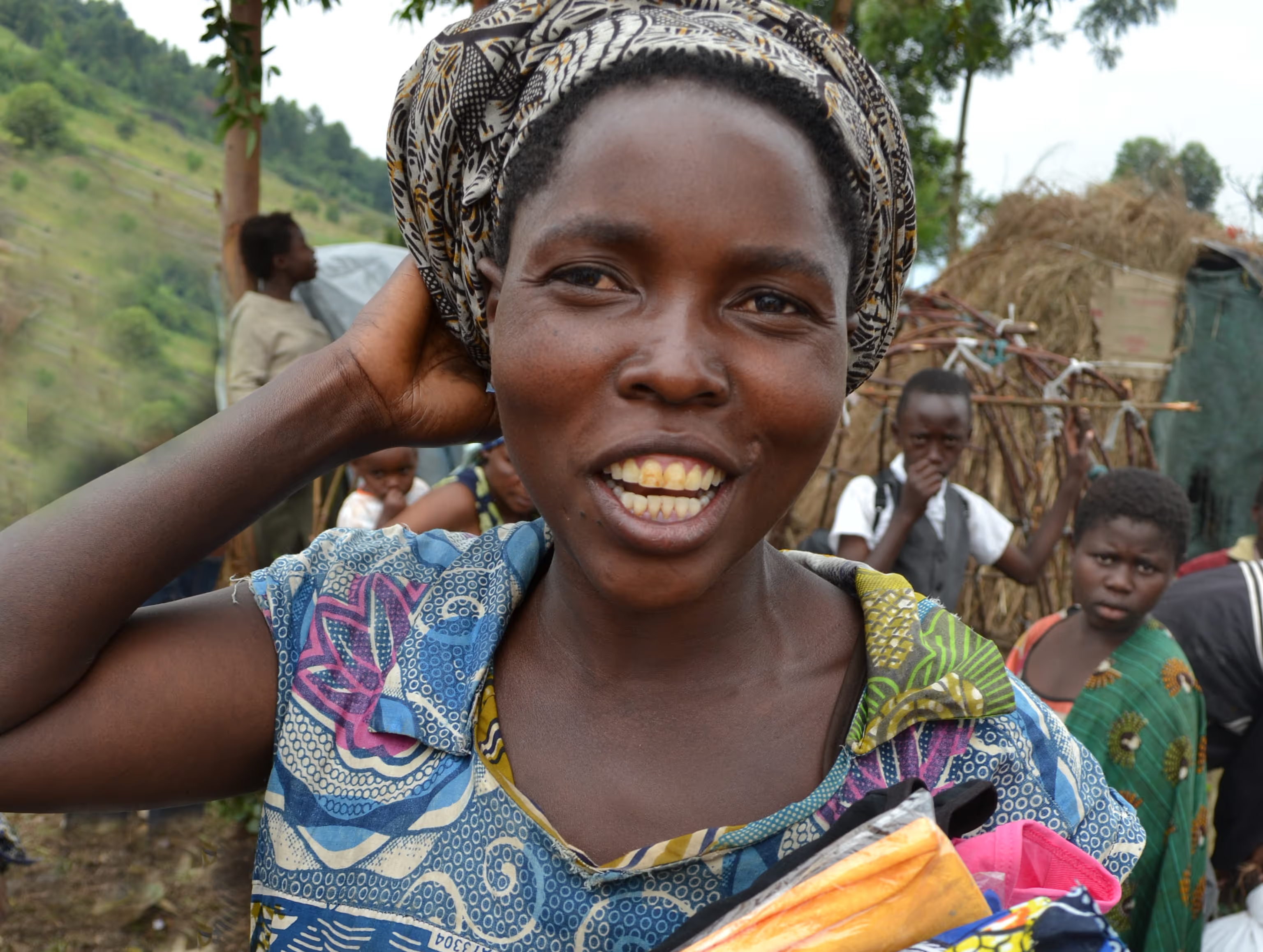
Projects
Self-managed abortion: Barriers and opportunities in humanitarian settings
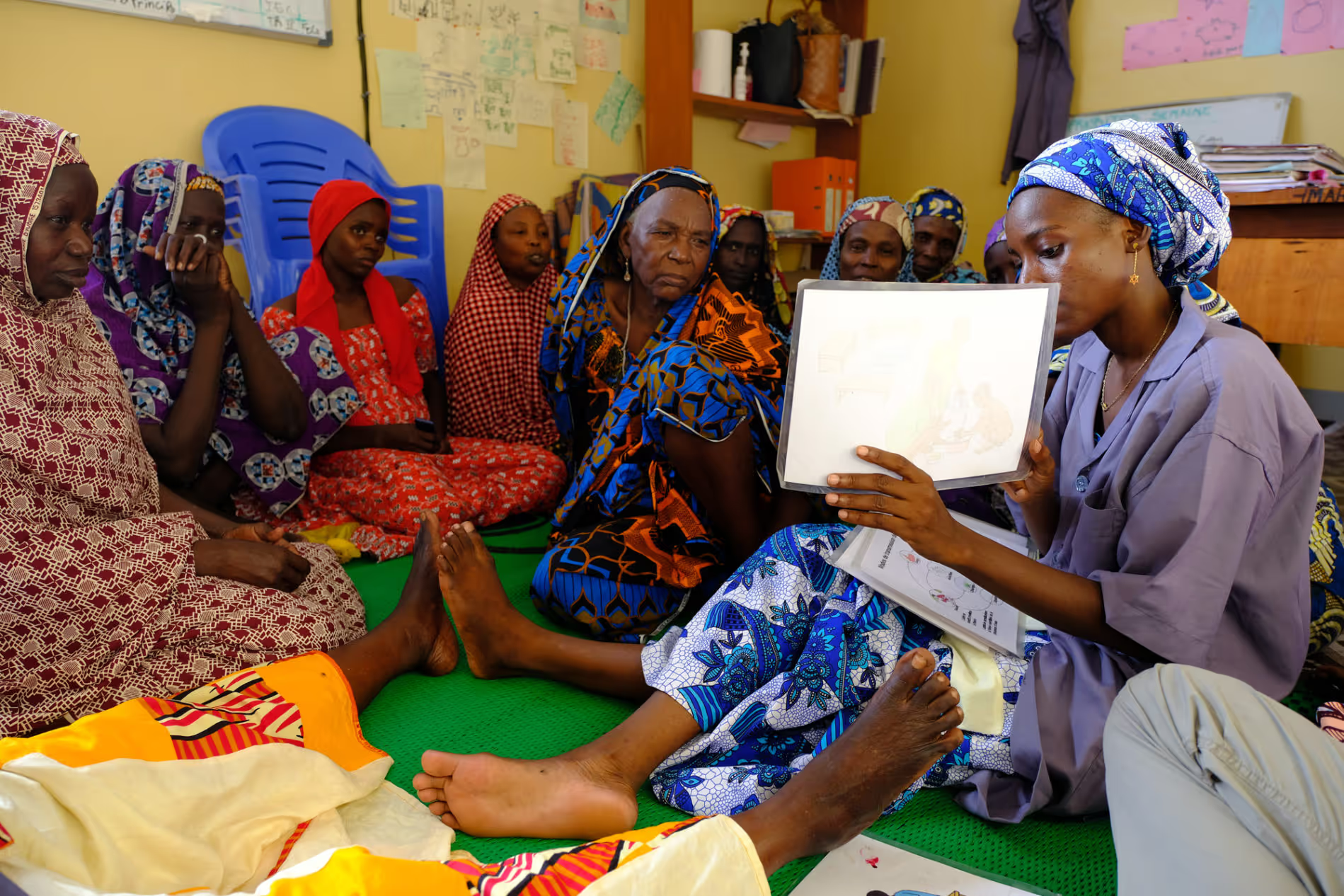
Projects
Magnitude and severity of abortion-related complications and factors associated with severe and near miss events in African humanitarian settings

Projects
Nawat (seeds) sprouting

Projects
MediCapt: Technology in Service of Justice for Sexual and Gender-based Violence in Humanitarian Settings
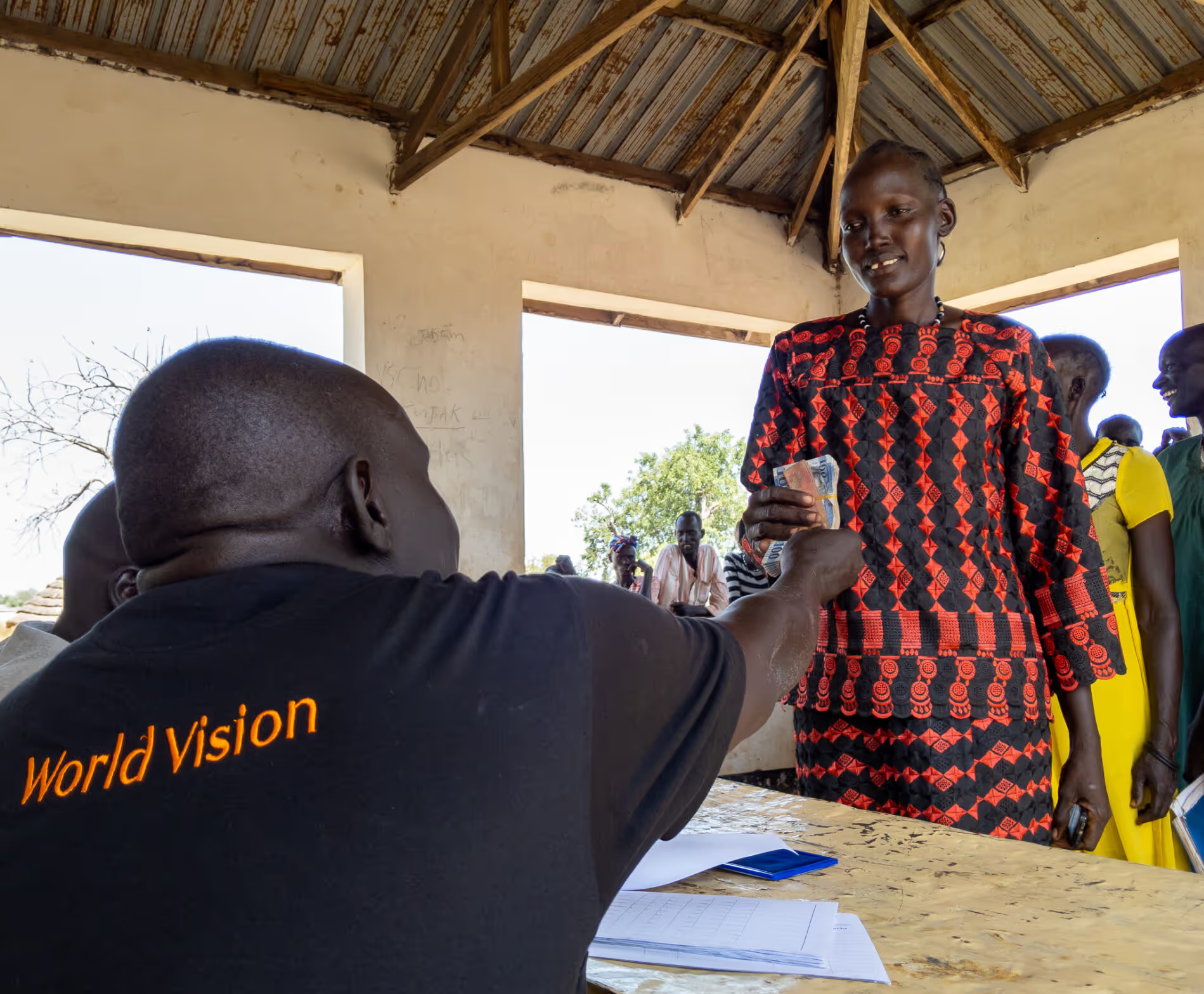
Projects
Effects of cash transfers on intimate partner violence in humanitarian settings in South Sudan
Explore Elrha
Learn more about our mission, the organisations we support, and the resources we provide to drive research and innovation in humanitarian response.
